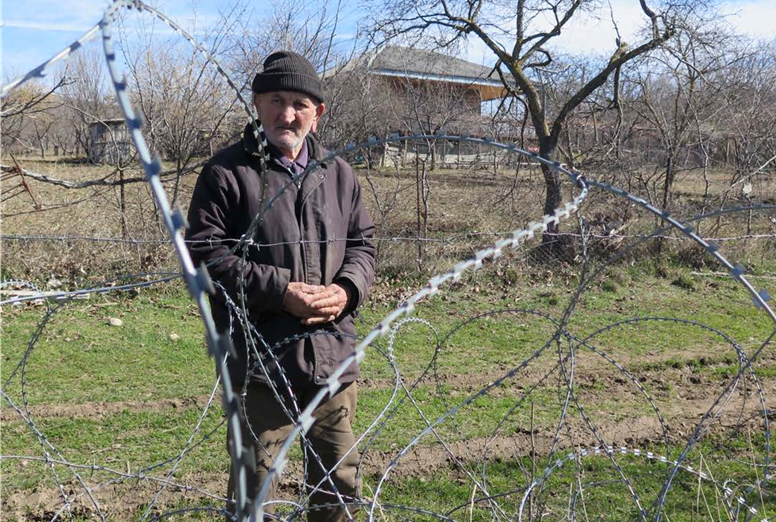The process known as “borderization” spearheaded by Russian forces negatively affects communities on both sides of the Administration Boundary Line (ABL), Amnesty International said in its report released on July 3 regarding human rights of the population living across the occupation lines in Abkhazia and Tskhinvali Region.
The report, which is based on Amnesty International’s year-long research, details illegal actions by the Russian forces and the de facto authorities in the both occupied regions, which limit freedom of movement of local residents, deprive them of access to livelihoods and social aid, infringe on their right to freedom of religion and the right to take part in cultural life. The report also focuses on detentions of locals for crossing the occupation lines and alleged cases of ill-treatment.
Amnesty International uses data from various sources, including the Government of Georgia and the EU Monitoring Mission in Georgia. The document notes that:- The process of “borderization” has been spearheaded since 2009 by Russian security services who along with the de facto authorities seek to transform the ABL into an “international border” after Moscow’s recognition of Abkhazia and South Ossetia/Tskhinvali Region as independent states. The process intensified from early 2013, when Russian forces started installing barbed-wire fences along the ABL, taking control of additional stretches of land previously administered by Tbilisi.
- As of late 2018, at least 34 villages had been divided by fences installed by the Russian servicemen separating their residents from adjacent “critical infrastructure,” such as farms, pasture-lands, irrigation sources or village cemeteries.
- Since the beginning of “borderization”, from 800 to 1,000 families in total had lost all or partial access to farmlands, pasture-lands and woodlands.
- Russian security service officers and de facto authorities regularly detain local residents for allegedly crossing the “state border.”
- In 2008-2018, the Georgian government reported over 1200 and over 1800 cases of detentions of Georgian citizens for crossing the administrative boundary lines with Tskhinvali Region and Abkhazia, respectively.
Amnesty International explains that it received no reply from Moscow, Tskhinvali and Sokhumi to get involved in the process of developing the report.
According to Amnesty International, “Russia has overall effective control of South Ossetia/Tskhinvali Region and Abkhazia” and therefore, it “is responsible both for the violations committed directly by its forces in Abkhazia and South Ossetia/Tskhinvali Region, and for those committed by the de facto authorities in these entities.”
The human rights watchdog gives a number of recommendations to the Russian government and the de facto authorities, as well as Georgia and the international community:
- Calls upon the Russian government to fully respect its obligations under international human rights and international humanitarian law; and in particular, to uphold the right to freedom of movement of civilians; as an immediate measure, review and relax the regime introduced for crossing the ABL; to ensure prompt, independent, thorough and impartial investigations into the allegations of torture and other ill-treatment of individuals detained during or after crossing the ABL into the territory under effective Russian control.
- Calls on Moscow, Tskhinvali and Sokhumi “to allow and facilitate access for and work in the territories under your control by the currently existing EU Monitoring Mission”.
- Calls on the Georgian government to provide relevant financial and social support to those families whose social and economic rights have been negatively impacted because of the “borderization”; to extend the State Referral Programme to ethnic Georgians from Gali and Akhalgori districts so that they can also enjoy the same entitlement to free healthcare like others from South Ossetia/Tskhinvali Region and Abkhazia.
- Calls upon the international community, including the UN, EU, CoE and the OSCE to explore every available opportunity for effective monitoring of the human rights situation on the South Ossetian/Tskhinvali Region and Abkhazian sides of the ABL, including contributing their respective expertise and other available resources to facilitate international monitoring of the human rights situation in the relevant territories and investigation of and reporting on the violations documented; it calls upon the EU to continue the operation of the EU Monitoring Mission in Georgia and renew their request to the Russian Federation to provide the EU Monitoring Mission in Georgia with access to South Ossetia/Tskhinvali Region and Abkhazia.
Read also:
06/03/2018 – Amnesty International Calls for Prompt Investigation into Tatunashvili’s Death
